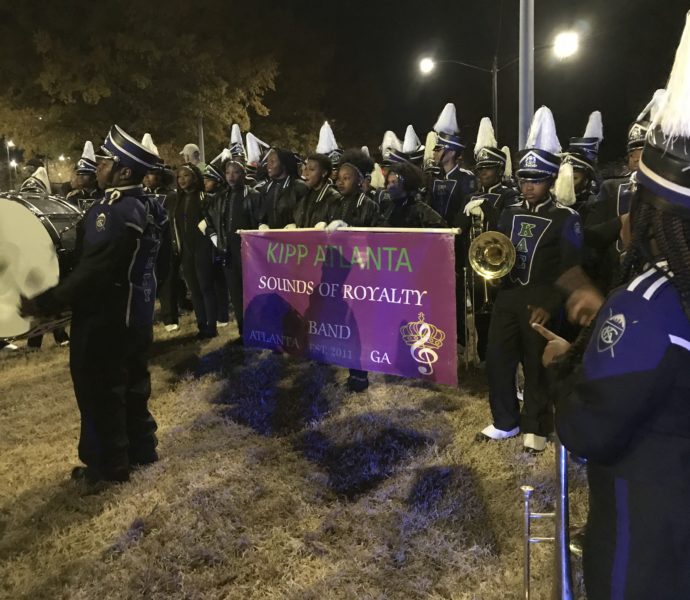Minority Voters Chafe as Democratic Candidates Abandon Charter Schools
ByErica L. Green and Eliza Shapiro
ATLANTA — The night before Democratic presidential candidates took to a debate stage here last week, black and Latino charter school parents and supporters gathered in a bland hotel conference room nearby to make signs they hoped would get the politicians’ attention.
“Charter schools = self-determination,” one sign read. “Black Democrats want charters!” another blared.
At issue is the delicate politics of race and education. For more than two decades, Democrats have largely backed public charter schools as part of a compromise to deliver black and Latino families a way out of failing district schools. Charters were embraced as an alternative to the taxpayer-funded vouchers for private-school tuition supported by Republicans, who were using the issue to woo minority voters.
But this year, in a major shift, the leading Democratic candidates are backing away from charter schools, and siding with the teachers’ unions that oppose their expansion. And that has left some black and Latino families feeling betrayed.
“As a single mom with two jobs and five hustles, I’m just feeling kind of desperate,” said Sonia Tyler, who plans to enroll her children in a charter school slated to open next fall in a suburb of Atlanta. “They’re brilliant; they’re curious. It’s not fair. Why shouldn’t I have a choice?”
Charter schools, which educate over three million students, are publicly funded and privately managed — and often are not unionized. Nationally, the schools perform about the same as traditional neighborhood schools. But charter schools that serve mostly low-income children of color in large cities tend to excel academically. And bipartisan support in Washington has allowed charters to proliferate, with their waiting lists swelling into the hundreds of thousands.
Since Bill Clinton’s presidency, the charter school movement has had Democratic backing. It was central to President Barack Obama’s education legacy. But this campaign season, charter schools present a challenging issue for the four Democratic front-runners for the nomination, all of whom are white, in a nominating contest that will be heavily influenced by black voters.
Senators Elizabeth Warren of Massachusetts and Bernie Sanders of Vermont, the two leading liberals, have vowed to curb charter school growth if elected. Former Vice President Joseph R. Biden Jr. and Mayor Pete Buttigieg of South Bend, Ind., have raised questions about the role of charters and make no mention of the schools in their education platforms.
Each are chasing both the powerful endorsements of national teachers’ unions and the support of black Democrats who tend to be more supportive of charter schools than their white counterparts, according to polling.
In contrast, one of the black candidates in the race, Senator Cory Booker of New Jersey, is using his support for charter schools to distinguish himself, writing in The New York Times, “As Democrats, we can’t continue to fall into the trap of dismissing good ideas because they don’t fit into neat ideological boxes or don’t personally affect some of the louder, more privileged voices in the party.”
Groups like the Freedom Coalition for Charter Schools have spent the past few months setting up makeshift war rooms ahead of Democratic primary debates to pull Democrats back toward charter schools. And charter school educators are not afraid to raise the issue of race.
Richard Buery, the chief of policy at KIPP, the nation’s largest charter network, called the Democratic shift “a reflection more broadly of the lack of respect for black voters in the party.”
“These are folks that should be champions of black children and allies of black educators,” said Mr. Buery, a Democrat.
To read the full article click here
